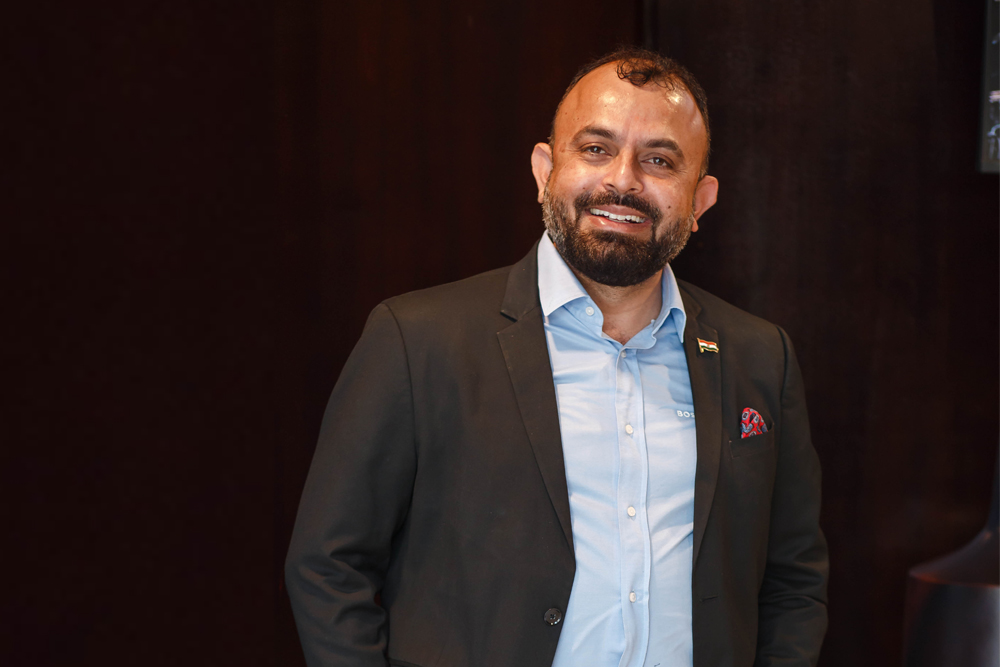
Janet Brown is the Chief Executive of Scottish Qualifications Authority (SQA). She took up the position in 2007 and continues to focus the activities of SQA on ensuring that Scotland has a high quality, flexible, forward looking qualifications system able to adapt to the ever changing needs of its society and economy. As part of this role, Janet advocates the need for global standards and recognition.
Prior to this, Janet was Managing Director of Industries at Scottish Enterprise and had previously spent 19 years working in the private sector in the United States. Janet has extensive experience in Science, Research & Technology as well as Business Management acquired in her previous positions with Motorola, Sematech and AT&T Bell Laboratories.
Born in Sheffield, Janet holds a BSc in Physics and a PhD in Physical Metallurgy & Materials Science, both awarded by the University of Birmingham. She is a Fellow of the Royal Society of Edinburgh, Fellow of the Royal Society of Arts, Fellow of the Institute of Physics, Governor of the Glasgow School of Art and Director of the Scottish Credit and Qualifications Framework (SCQF) Partnership.
Brown was recently in Nepal on an invitation of National Vocational Qualifications System and CTEVT to participate in a seminar on National Qualifications Framework. In an interview with Business 360, Brown shared her experiences regarding the educational system of Scotland and what Nepal can learn from it. Excerpts:
What is the purpose of your visit to Nepal?
I was here to join a seminar on National Qualifications Framework where we were discussing the experiences from different countries of what it means to have and develop the qualification framework. I was specifically talking about our experience in Scotland, of Scottish Qualification and Credit Framework.
How do you find the educational system in Nepal? What are the rooms for improvement?
We have been working in Nepal since 2014. I find the situation in Nepal very encouraging as everyone is discussing how important it is to make sure that learners within Nepal get what they need to be successful later in life. There a lot of government agencies and people thinking about how to improve the quality of education, both in the schools and in the vocational sector. Nepal wants to learn from other countries, but it is important to make sure that the system works for Nepal.
What can Nepal learn from the educational system of Scotland?
If you look at the educational system of Scotland, we obviously have a different set of challenges than Nepal. In Scotland, we try to make sure that learning and education is exciting for students, because people learn better if they see the relevance of their learning. One of the things that we have been doing is trying to make sure that people learn in a context that they see as valuable. They learn in an environment that excites them. For instance, when learning physics, instead of learning about a clock or some boring object, they learn about racing cars. This makes them excited and makes them want to learn more. I think this type of learning is important for any country. Learning should be exciting, and should be something that they see relevant to their lives. But we have to remember that learning requires work as well, it’s not all fun.
 What do you think should be the education model for the new generation?
People need to be able to respond to the changes that are happening all the time. So it is important that they learn not only the details of learning but also how to apply that learning in different situations. As the requirements for businesses and industries change, we need to be able to bring our learning to that situation. It is essential to teach people the basics, and also how to apply that in different situations. The new educational model should be less about passing an exam, and more about being able to do something with that learning.
Every type of learning, whether academic or vocational, is important because every country requires a spectrum of different skills. Some people need to be there with academic skills, some others need to be equipped with very strong vocational skills across a wide variety of industries, whether it is tourism, construction or engineering, everything is needed in a society.
What should be done to improve basic literacy skills in Nepal? What can be done to reduce school dropout rate?
This is a huge challenge in a lot of countries. One of the things we need is to make sure that we have good teachers, teachers who can make learning interesting. A teacher should know that teaching an adult and teaching a child are two different things. It’s all about making learning interesting. It’s about making people understand the value of education. Sometimes people drop out because they are bored, and teachers have to make sure that they are interested in learning, and make them understand why education is valuable, and how it will improve their lives and give them a better future.
How important do you think is the implementation of technology in education?
The first think is to recognise that learning and education is the most important. Sometimes people think that if we offer technology, it would be better, but we need good learning and teaching first. Then there is the question of availability of technology, and if you have that, you can provide a wider set of experiences. But if you don’t have technology, you can still impart very good education and skill development. In that sense, the implementation of technology is good, but it’s not indispensable for learning. What we should do is understand how to embed the understanding of technology in all aspects of a child’s education so that they are ready to take on that technology when they need to.
Sustainable Development Goals has mentioned quality education as one of its 17 goals. How do you define quality education? How can it be achieved?
Quality education could be summed up by having good standards of education and teaching, and having good teachers who know how to teach, just because you know a subject doesn’t mean that you can explain it to others. One aspect is quality teachers who are trained to teach. The other aspect is to make sure that everyone is given the same standard of education so that everybody has same opportunity and same learning. The same applies to colleges and vocational trainings. It is good for students and teachers, and also for those people who receive these students after they leave their learning and training.
How can Nepal and Scotland collaborate in terms of education?
In the seminar, we had a lot of exchange of ideas. We had a lot of experience in establishing National Qualification Framework in Scotland. Nepal is in the early stages of that, so we had a joint discussion to make sure that Nepal can learn from our mistakes, and know what has worked for us. But you can’t expect the same thing to work for Nepal as Nepal is a very different place. We can help in the discussions about what might work and what our experiences have been. We also learnt a lot from Nepal’s experiences and the challenges, and it will help us too. It’s a joint learning and is very valuable for both the countries.
What do you think should be the education model for the new generation?
People need to be able to respond to the changes that are happening all the time. So it is important that they learn not only the details of learning but also how to apply that learning in different situations. As the requirements for businesses and industries change, we need to be able to bring our learning to that situation. It is essential to teach people the basics, and also how to apply that in different situations. The new educational model should be less about passing an exam, and more about being able to do something with that learning.
Every type of learning, whether academic or vocational, is important because every country requires a spectrum of different skills. Some people need to be there with academic skills, some others need to be equipped with very strong vocational skills across a wide variety of industries, whether it is tourism, construction or engineering, everything is needed in a society.
What should be done to improve basic literacy skills in Nepal? What can be done to reduce school dropout rate?
This is a huge challenge in a lot of countries. One of the things we need is to make sure that we have good teachers, teachers who can make learning interesting. A teacher should know that teaching an adult and teaching a child are two different things. It’s all about making learning interesting. It’s about making people understand the value of education. Sometimes people drop out because they are bored, and teachers have to make sure that they are interested in learning, and make them understand why education is valuable, and how it will improve their lives and give them a better future.
How important do you think is the implementation of technology in education?
The first think is to recognise that learning and education is the most important. Sometimes people think that if we offer technology, it would be better, but we need good learning and teaching first. Then there is the question of availability of technology, and if you have that, you can provide a wider set of experiences. But if you don’t have technology, you can still impart very good education and skill development. In that sense, the implementation of technology is good, but it’s not indispensable for learning. What we should do is understand how to embed the understanding of technology in all aspects of a child’s education so that they are ready to take on that technology when they need to.
Sustainable Development Goals has mentioned quality education as one of its 17 goals. How do you define quality education? How can it be achieved?
Quality education could be summed up by having good standards of education and teaching, and having good teachers who know how to teach, just because you know a subject doesn’t mean that you can explain it to others. One aspect is quality teachers who are trained to teach. The other aspect is to make sure that everyone is given the same standard of education so that everybody has same opportunity and same learning. The same applies to colleges and vocational trainings. It is good for students and teachers, and also for those people who receive these students after they leave their learning and training.
How can Nepal and Scotland collaborate in terms of education?
In the seminar, we had a lot of exchange of ideas. We had a lot of experience in establishing National Qualification Framework in Scotland. Nepal is in the early stages of that, so we had a joint discussion to make sure that Nepal can learn from our mistakes, and know what has worked for us. But you can’t expect the same thing to work for Nepal as Nepal is a very different place. We can help in the discussions about what might work and what our experiences have been. We also learnt a lot from Nepal’s experiences and the challenges, and it will help us too. It’s a joint learning and is very valuable for both the countries.
 What do you think should be the education model for the new generation?
People need to be able to respond to the changes that are happening all the time. So it is important that they learn not only the details of learning but also how to apply that learning in different situations. As the requirements for businesses and industries change, we need to be able to bring our learning to that situation. It is essential to teach people the basics, and also how to apply that in different situations. The new educational model should be less about passing an exam, and more about being able to do something with that learning.
Every type of learning, whether academic or vocational, is important because every country requires a spectrum of different skills. Some people need to be there with academic skills, some others need to be equipped with very strong vocational skills across a wide variety of industries, whether it is tourism, construction or engineering, everything is needed in a society.
What should be done to improve basic literacy skills in Nepal? What can be done to reduce school dropout rate?
This is a huge challenge in a lot of countries. One of the things we need is to make sure that we have good teachers, teachers who can make learning interesting. A teacher should know that teaching an adult and teaching a child are two different things. It’s all about making learning interesting. It’s about making people understand the value of education. Sometimes people drop out because they are bored, and teachers have to make sure that they are interested in learning, and make them understand why education is valuable, and how it will improve their lives and give them a better future.
How important do you think is the implementation of technology in education?
The first think is to recognise that learning and education is the most important. Sometimes people think that if we offer technology, it would be better, but we need good learning and teaching first. Then there is the question of availability of technology, and if you have that, you can provide a wider set of experiences. But if you don’t have technology, you can still impart very good education and skill development. In that sense, the implementation of technology is good, but it’s not indispensable for learning. What we should do is understand how to embed the understanding of technology in all aspects of a child’s education so that they are ready to take on that technology when they need to.
Sustainable Development Goals has mentioned quality education as one of its 17 goals. How do you define quality education? How can it be achieved?
Quality education could be summed up by having good standards of education and teaching, and having good teachers who know how to teach, just because you know a subject doesn’t mean that you can explain it to others. One aspect is quality teachers who are trained to teach. The other aspect is to make sure that everyone is given the same standard of education so that everybody has same opportunity and same learning. The same applies to colleges and vocational trainings. It is good for students and teachers, and also for those people who receive these students after they leave their learning and training.
How can Nepal and Scotland collaborate in terms of education?
In the seminar, we had a lot of exchange of ideas. We had a lot of experience in establishing National Qualification Framework in Scotland. Nepal is in the early stages of that, so we had a joint discussion to make sure that Nepal can learn from our mistakes, and know what has worked for us. But you can’t expect the same thing to work for Nepal as Nepal is a very different place. We can help in the discussions about what might work and what our experiences have been. We also learnt a lot from Nepal’s experiences and the challenges, and it will help us too. It’s a joint learning and is very valuable for both the countries.
What do you think should be the education model for the new generation?
People need to be able to respond to the changes that are happening all the time. So it is important that they learn not only the details of learning but also how to apply that learning in different situations. As the requirements for businesses and industries change, we need to be able to bring our learning to that situation. It is essential to teach people the basics, and also how to apply that in different situations. The new educational model should be less about passing an exam, and more about being able to do something with that learning.
Every type of learning, whether academic or vocational, is important because every country requires a spectrum of different skills. Some people need to be there with academic skills, some others need to be equipped with very strong vocational skills across a wide variety of industries, whether it is tourism, construction or engineering, everything is needed in a society.
What should be done to improve basic literacy skills in Nepal? What can be done to reduce school dropout rate?
This is a huge challenge in a lot of countries. One of the things we need is to make sure that we have good teachers, teachers who can make learning interesting. A teacher should know that teaching an adult and teaching a child are two different things. It’s all about making learning interesting. It’s about making people understand the value of education. Sometimes people drop out because they are bored, and teachers have to make sure that they are interested in learning, and make them understand why education is valuable, and how it will improve their lives and give them a better future.
How important do you think is the implementation of technology in education?
The first think is to recognise that learning and education is the most important. Sometimes people think that if we offer technology, it would be better, but we need good learning and teaching first. Then there is the question of availability of technology, and if you have that, you can provide a wider set of experiences. But if you don’t have technology, you can still impart very good education and skill development. In that sense, the implementation of technology is good, but it’s not indispensable for learning. What we should do is understand how to embed the understanding of technology in all aspects of a child’s education so that they are ready to take on that technology when they need to.
Sustainable Development Goals has mentioned quality education as one of its 17 goals. How do you define quality education? How can it be achieved?
Quality education could be summed up by having good standards of education and teaching, and having good teachers who know how to teach, just because you know a subject doesn’t mean that you can explain it to others. One aspect is quality teachers who are trained to teach. The other aspect is to make sure that everyone is given the same standard of education so that everybody has same opportunity and same learning. The same applies to colleges and vocational trainings. It is good for students and teachers, and also for those people who receive these students after they leave their learning and training.
How can Nepal and Scotland collaborate in terms of education?
In the seminar, we had a lot of exchange of ideas. We had a lot of experience in establishing National Qualification Framework in Scotland. Nepal is in the early stages of that, so we had a joint discussion to make sure that Nepal can learn from our mistakes, and know what has worked for us. But you can’t expect the same thing to work for Nepal as Nepal is a very different place. We can help in the discussions about what might work and what our experiences have been. We also learnt a lot from Nepal’s experiences and the challenges, and it will help us too. It’s a joint learning and is very valuable for both the countries.
Published Date: May 1, 2017, 12:00 am
Post Comment
E-Magazine
RELATED ETC


.jpg)


